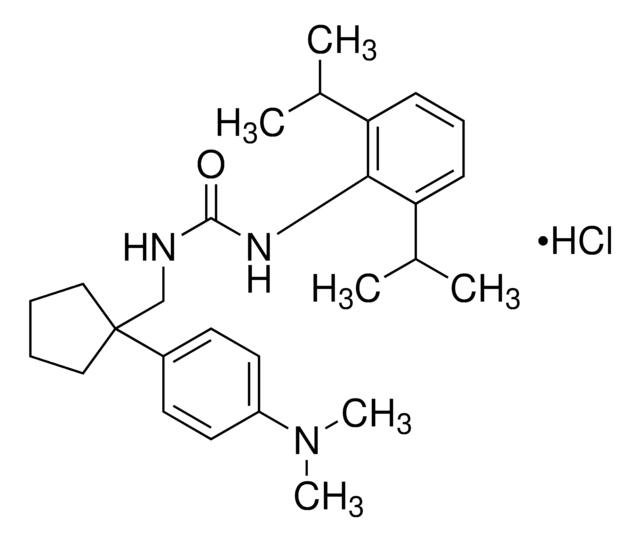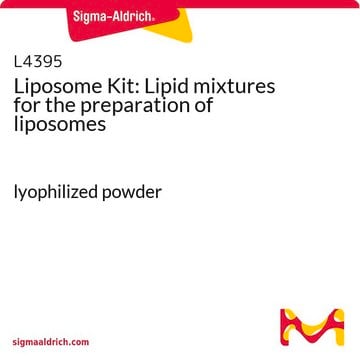C3743
CI 976
>98% (HPLC), solid
Synonym(s):
2,2-Dimethyl-N-(2,4,6-trimethoxyphenyl)dodecanamide
About This Item
Recommended Products
Quality Level
Assay
>98% (HPLC)
form
solid
solubility
DMSO: >10 mg/mL
H2O: insoluble <2 mg/mL
storage temp.
2-8°C
SMILES string
CCCCCCCCCCC(C)(C)C(=O)Nc1c(OC)cc(OC)cc1OC
InChI
1S/C23H39NO4/c1-7-8-9-10-11-12-13-14-15-23(2,3)22(25)24-21-19(27-5)16-18(26-4)17-20(21)28-6/h16-17H,7-15H2,1-6H3,(H,24,25)
InChI key
WAFNZAURAWBNDZ-UHFFFAOYSA-N
Application
- to analyze its anti-hepatitis C virus (HCV) activity in Huh7.5.1 cells
- to treat Neuro-2a cells to test its effect on plasma membrane integrated density of α4-SEPβ2 or α6-SEPβ2β3 nicotinic acetylcholine receptors (nAChRs)
- to study its effects on the anti-angiogenic activity of pyripyropenes in human umbilical vein endothelial cells
Biochem/physiol Actions
Hazard Statements
Precautionary Statements
Hazard Classifications
Aquatic Chronic 4
Storage Class Code
11 - Combustible Solids
WGK
WGK 3
Flash Point(F)
Not applicable
Flash Point(C)
Not applicable
Personal Protective Equipment
Certificates of Analysis (COA)
Search for Certificates of Analysis (COA) by entering the products Lot/Batch Number. Lot and Batch Numbers can be found on a product’s label following the words ‘Lot’ or ‘Batch’.
Already Own This Product?
Find documentation for the products that you have recently purchased in the Document Library.
Our team of scientists has experience in all areas of research including Life Science, Material Science, Chemical Synthesis, Chromatography, Analytical and many others.
Contact Technical Service






